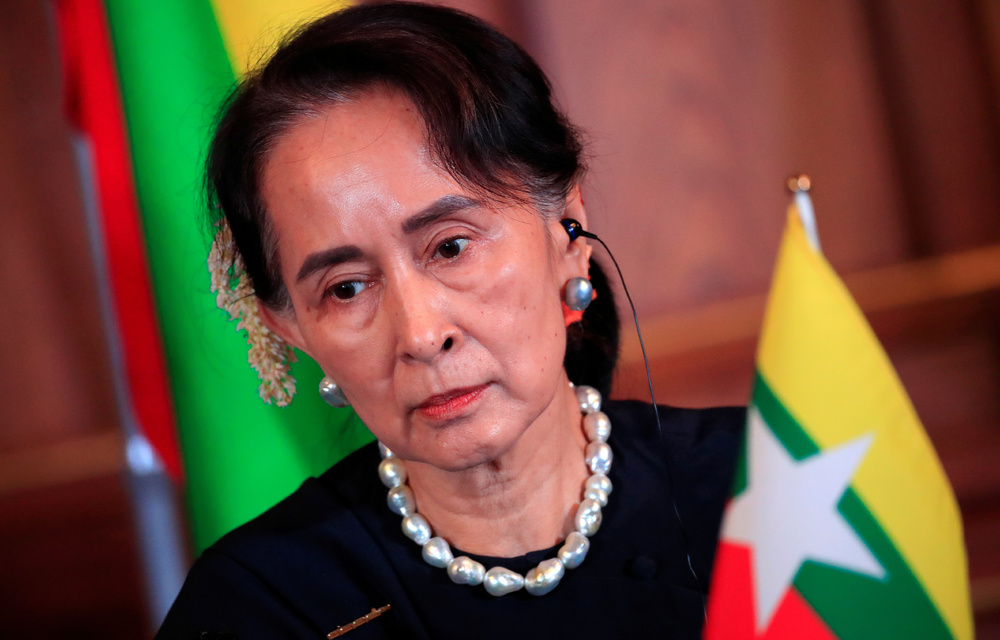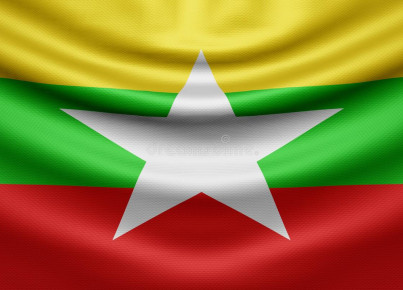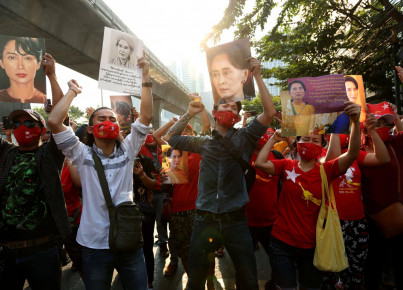Portrait of a controversial woman in a country torn by conflicts
Half of the world hates her. Half of the world loves her. Drawing up a portrait of the Lady is not easy. One can get caught in a consistent grey area, which returns a blurred and mysterious image of her.
Aung San Suu Kyi, State Counsellor of Myanmar, Minister of Foreign Affairs, and Minister of the President's Office. Nobel Peace Prize laureate, Rafto Memorial Prize for Human Rights winner, Sakharov Prize for the Freedom of thought recipient, US Congressional Gold Medal overcomer. Woman, wife, daughter. She was placed under house arrest on and off from 1988 to 2010, while her husband in England died of cancer. She nearly escaped a firefight that was plotted explicitly against her and her supporters. She was then condemned by the international critics for legitimizing, or at least denying, the Rohingya Muslim minority genocide in Myanmar.
Myanmar which has been recently put in the spotlight by the international press due to the coup d’état of Burmese military forces, the Tatmadaw. Leaders of the majority party NLD (National League for Democracy) led by Aung San Suu Kyi were arrested, a state of emergency was declared, and all means of communication were cut. For the present being, allegations include “violation of the import-export law”, because she was illegally detaining four walkie-talkies. The news caused a sensation worldwide. But it was no surprise for those that have been following developments in Myanmar for a long time. The coup d’état fits into a context where frictions between military forces and the Lady lasted for decades. Along with the junta’s strict control over the country's political, social, and religious life.
Burmese military junta has been closely tied with Myanmar’s political life since 1962, 14 years after the country’s independence from Great Britain and a short period of democratic transition. First, by supporting the Socialist Party, then, by invalidating the party’s election victory, the pretext of electoral fraud has always been used by the junta to keep control and suppress all the pro-democratic movements that followed 1962. The most famous one, which turned into the “8888 Uprising” (a national insurrection whose aim was a more democratic government), began on the 8th of August 1988. It lasted one month and went down in history as it ended in bloodshed. Thousands of monks and civilians, mainly students, were killed by the Tatmadaw. Due to riots, the State Peace and Development Council was founded, led by the military junta. It was in this context that Aung San Suu Kyi emerged as a national icon. She lived abroad for a consistent part of her life, but that year was back in Myanmar, to look after her sick mother.
Her father, Aung San, was a Burmese General and a politician. He negotiated Burma's independence from the United Kingdom and became Counsellor for Defence. However, he was assassinated at the height of his success, leaving a heavy burden on his two-year-old daughter, his two sons, and his wife, wife, who became Myanmar Ambassador to India some years later. Suu Kyi attended the best Western universities and started working at the United Nations in New York. She lived there until the 1988 Uprising. After the tragedy, she decided to remain in Myanmar and found the NLD. One year later, she was under house arrest.
After 1988, up and downs followed. Probation and house arrest, the overwhelming victory of her party in the elections (cancelled once again by a military coup), the Nobel Peace Prize, the calls of the international community for her release, from Kofi Annan to Pope Giovanni Paolo II. She survived a gunfight, but her husband died of cancer in England, thousands of miles away from her. Her children grew and became adults without being allowed to see her.
She was finally released in 2010, and in 2015 the first free elections since the coup of 1962 were held. According to the 2008 Constitution, drafted by the junta, Aung San Suu Kyi could not be elected as the President: citizens having foreign relatives (British children, in her case) cannot have access to the highest state office. Suspects are that the law was specifically created to prevent her to assume the role. To get by the rule, a new ad hoc position was created just for her, the “State Counsellor”: a de facto Prime Minister.
After some years, the international community’s excitement for her success suddenly turned off, replaced by indignation. The champion of democracy and human rights denied the Rohingya ethnic cleansing carried out by the junta in the Rakhine state. When called to witness by the International Court in The Hague, she talked about “misleading and incomplete picture of the situation in Rakhine State”, defending her country by the accusation of genocide. Despite that the crisis demolished her public image abroad, she gained a broader consensus among the Burmese population thanks to her speech. A consensus that increased even more, thanks to the well-management of the COVID-19 crisis in the country.
The public opinion around her figure splits in two. From one side, some point the finger at her silence and claims that prizes must be rescinded. From the other side, some know well how delicate her position is. And how it is not easy to counteract the enormous political influence of the junta and the Sangha, the Buddhist monastic order that legitimates the country’s ruler’s political power. Those who are approved by the Sangha, whether politicians or generals, are approved by the population too. Its most radical and nationalist fringe is well known for acting violent and spreading hate speech against Rohingyas. The Sangha might well have some weight in influencing Suu Kyi’s actions and choices to keep the country together.
Influence or not, Suu Kyi delivered in January a New Year address to the Nation. She promised a new approach towards the peace negotiation process and to fix the numerous civil conflicts in the country. She paved the way for a plan, the “New Peace Architecture”, to gather more participation from diverse political forces, civil society organizers, and citizens. The coup casts a dark shadow on these projects, and it is not sure whether these will be pursued anymore.






